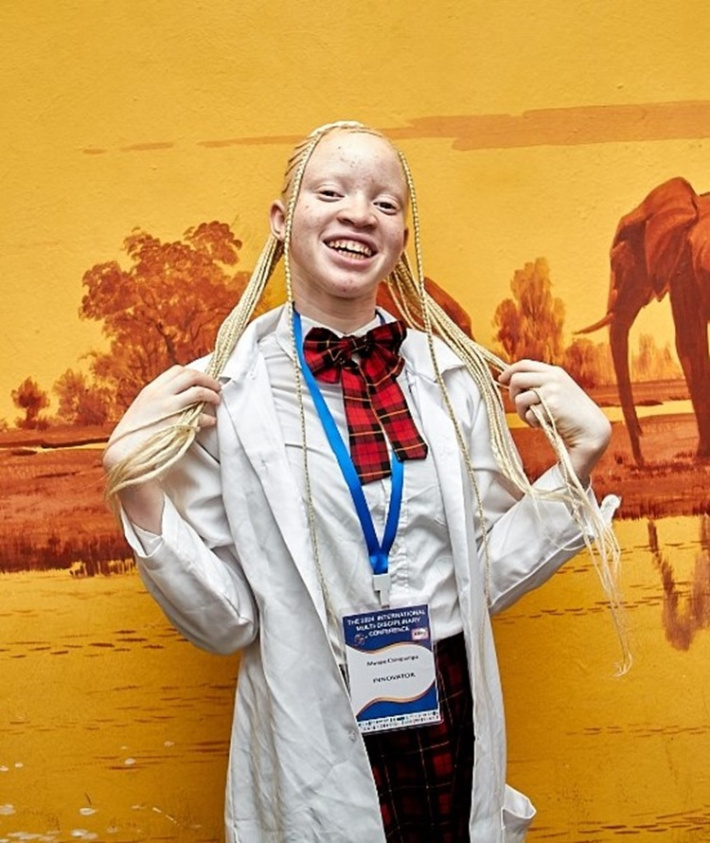Mwape Chimpampa develops affordable organic sunscreen to protect people with albinism from deadly UV radiation.
The unforgiving African sun poses a severe threat, particularly to individuals born without melanin. In Zambia, where over 25,000 people live with albinism, the risk of developing skin cancer is astoundingly high – as much as 1,000 times greater than for the average person, according to research. Many individuals with albinism tragically succumb to premature deaths before the age of 40, often in their 20s or 30s, due to preventable skin damage.
This is the reality that shaped Mwape Chimpampa’s life. In 2017, she lost her father to skin cancer. He had albinism, and like many others in Zambia, he could not afford sunscreen. Imported products were too costly and inaccessible, and his lack of protection against the sun ultimately claimed his life. Chimpampa was only a child then, but the experience lit a fire in her. By the time she reached Grade 11 at Naboye Secondary School in Kafue District, she had already begun working on a solution that could save thousands from suffering the same fate.
Her answer was Hee Natural Sunscreen, an affordable, organic product she developed after months of research and testing. Unlike chemical sunscreens, which are based on expensive imported compounds, her formula relies on locally available ingredients such as fruits, vegetables, spices, aloe vera, turmeric, banana, and milk. These natural materials were chosen for their UV-protective and moisturising qualities, making the product not only effective but also safe for sensitive skin.
After about a year of development, including six months of trials, she produced a sunscreen with a Sun Protection Factor of 22, comfortably above the SPF 15 minimum recommended for people with albinism. Packaged in an easy-to-use spray form, it is both practical and suitable for different skin types.
The innovation quickly drew recognition. In 2024, the innovator presented her sunscreen at the National Junior Engineers, Technicians, and Scientists (JETS) Competition in Lusaka, where it was ranked among the top entries. From there, the project was taken up by the Zambia Research and Development Centre, which provided technical mentorship, scientific validation, and incubation support to prepare it for large-scale production. With input from dermatologists, healthcare professionals, and local farmers, the sunscreen was refined to ensure quality and sustainability, while its local sourcing model promised affordability and economic benefits.
For Zambia’s albinism community, numbering around 25,000 to 30,000 people, the potential impact of this invention is life-saving as affordable sunscreen could drastically reduce skin cancer rates, extend life expectancy, and improve quality of life.
Wampe Chimpampa is making moves to scale her sunscreen beyond Zambia to other African countries, and even globally, while pursuing a career in biochemistry and healthcare innovation.



